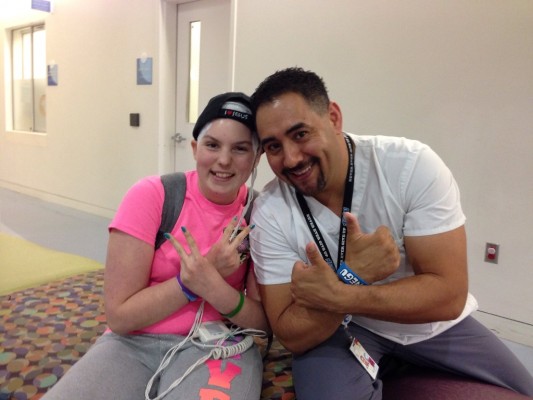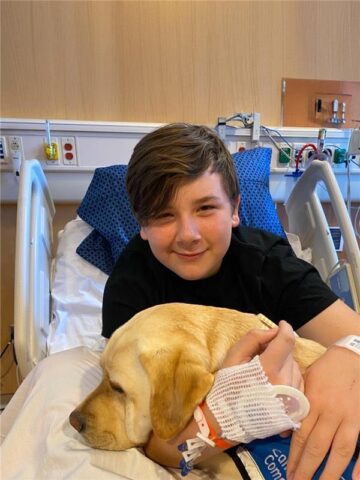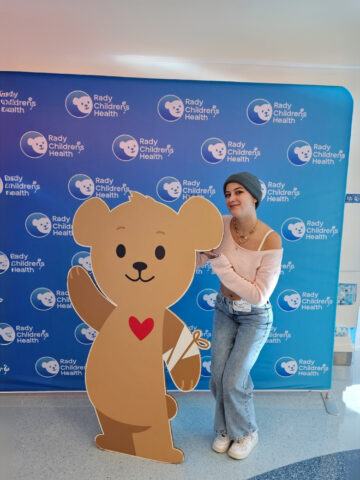While many teenaged girls might balk at wearing a medical device on their shaved heads 18 hours a day, Abbey Schemmer didn’t blink an eye.
After all, the 16-year-old CHOC patient was fighting for her life.
Following the diagnosis of two brain tumors – including a rare, extremely aggressive type called glioblastoma multiforme – and several surgeries, Abbey and her family turned to a new technique to halt the tumors’ growth: tumor treating fields, or TTF.
TTF uses electromagnetic forces to prevent this type of tumor from dividing and growing. TTF was only recently approved for adult use, and as a pediatric patient, Abbey received special clearance to use ahelmet-like device that administers the treatment.
Worn continuously for 18 hours a day, the helmet places electrodes directly on Abbey’s scalp, which requires her to shave her head every few days so that the helmet’s electrodes directly touch her skin. Abbey wears the device’s power source in a backpack.
“This is not an easy treatment,” said Dr. Violet Shen, Abbey’s oncologist at CHOC. “But she was willing to do that and is wearing her helmet and head dressings and still going on with her life.”
Following about nine months of TTF treatment and chemotherapy, Abbey’s tumor shows no signs of major progression, Dr. Shen said.
The progress is a marked departure from expectations when Abbey was diagnosed in early 2013 following complaints of nausea, headaches and lethargy.
“We thought we had a sick little girl,” said Ken, Abbey’s father. “We were thinking she wouldn’t live for very long.”
Abbey immediately underwent surgery to remove the tumor, followed by chemotherapy and radiation. She stayed in good spirits and continued with school, but after she experienced seizures in summer 2014, it was clear the glioblastoma had grown back.
After another surgery to remove Abbey’s right frontal lobe, the family explored other methods to curb the tumor’s growth, and ultimately turned to TTF.
“It was cool that it could help my cancer,” Abbey said.
In the months following, Abbey has continued in school and she’s looking forward to beginning driver’s education. Her schoolmates have rallied around her, and taken an interest in her unique treatment, Abbey said. “People ask me questions,” she said. “They think it’s fun because my backpack generates heat. They ask, ‘Can I see your heater?’”
If this treatment continues to work, Abbey could feasibly continue to wear the helmet for the rest of her life, Ken says. For now, her family is taking the treatment one day at a time.
“It’s been working,” Dr. Shen said. “Very few people survive with this tumor for six months, let alone a year. Abby’s done well. She’s very vigorous and still attending school. Abbey’s definitely a fighter.”






